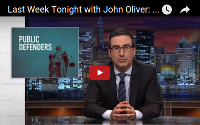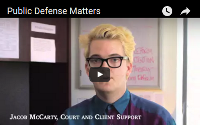Some sheriffs, prosecutors and defenders scramble to move people from local jails, potential petri dishes for infection.
In Houston, the massive county jail has stopped admitting people arrested for certain low-level crimes. In Tulsa, Oklahoma, people who usually spend their days fighting with each other—public defenders and prosecutors—joined forces to get 75 people released from jail in a single day. And outside Oakland, California, jailers are turning to empty hotel rooms to make sure the people they let out have a place to go.
Across the country, the coronavirus outbreak is transforming criminal justice in the most transient and turbulent part of the system: local jails. Run mostly by county sheriffs, jails hold an ever-changing assortment of people—those who are awaiting trial and cannot afford to pay bail; those convicted of low-level offenses; overflows from crowded prisons.
Even without a global pandemic, many local jails struggle to provide adequate medical care for a population that is already high-risk: many people in jails suffer from addiction or mental illness. Some have died after lax medical care for treatable illnesses.
“Basically, the shit hit the fan,” said Corbin Brewster, chief public defender of Tulsa County. “COVID-19 is just a magnifying glass for all the problems in the criminal justice system.”
Local officials’ responses have run the gamut. In the crisis of the moment, some are adopting measures long urged by criminal justice reformers: declining to prosecute or freeing people who have committed drug offenses or nonviolent crimes; releasing the sick or elderly; trying to reduce the jail population. For example, officials have been temporarily transferring some at-risk detainees to housing units in Kent, Washington, which were built to house homeless people.
But others have stuck to tough-on-crime tactics or rhetoric. The sheriff in Bristol County, near Boston, argued the incarcerated would be safer locked up, as would the public.
Because millions of people each year cycle in and out of jail, experts have long warned that these lockups have the potential to be petri dishes of infection—an assertion coronavirus will test.





